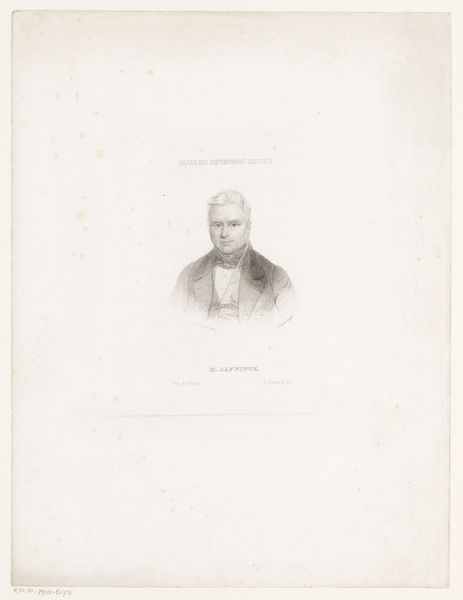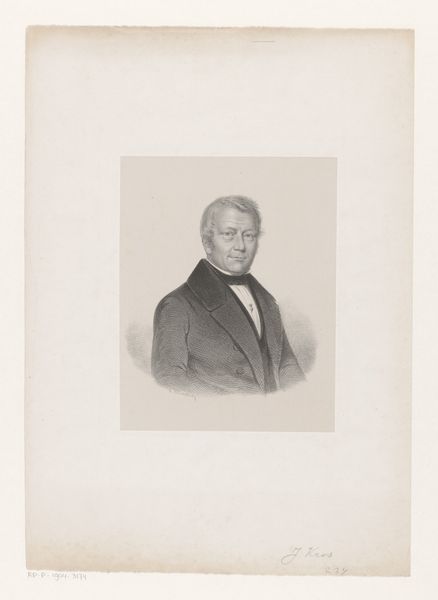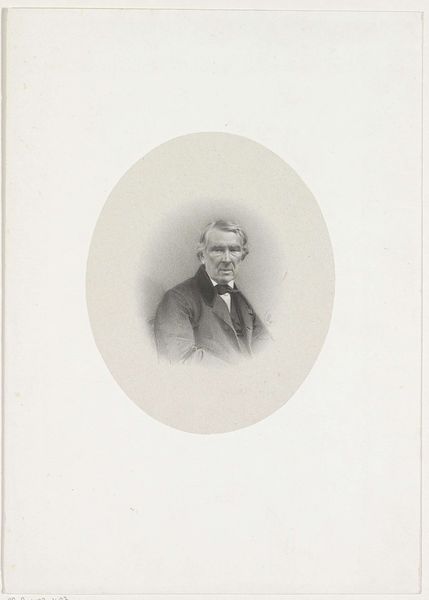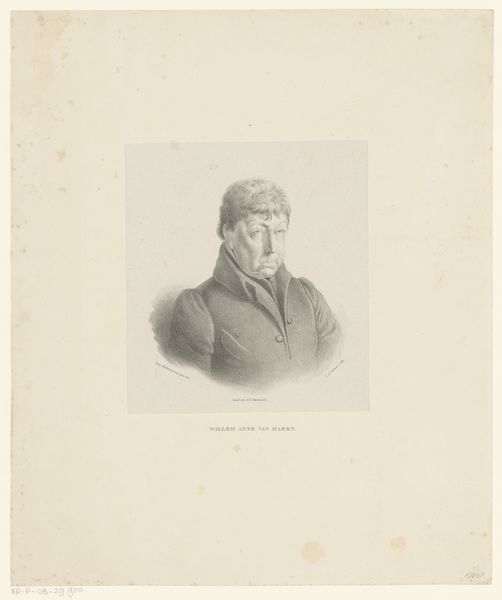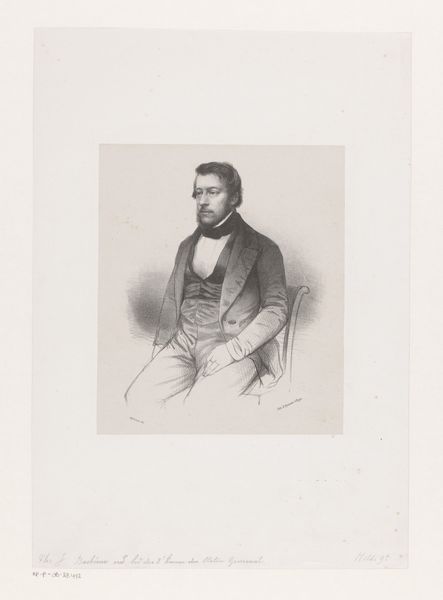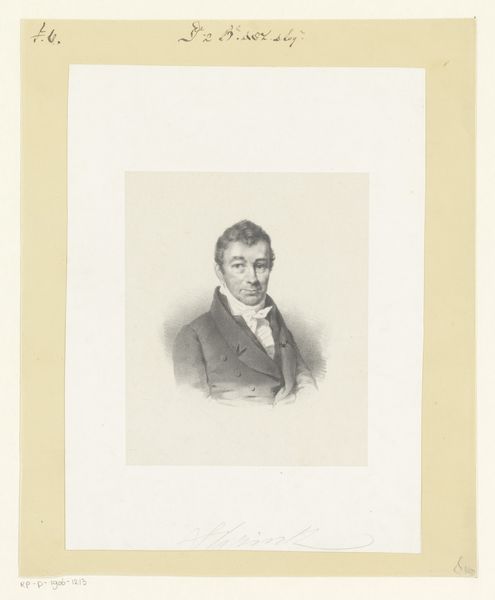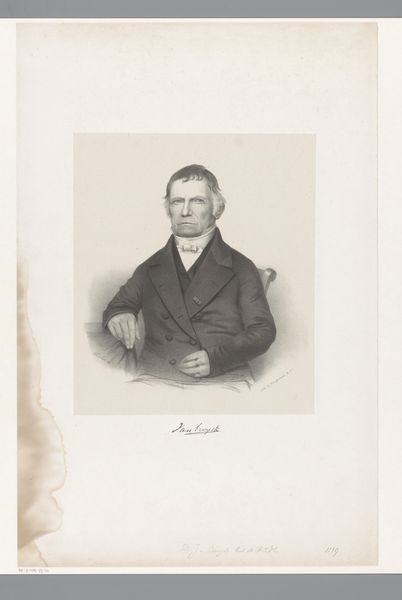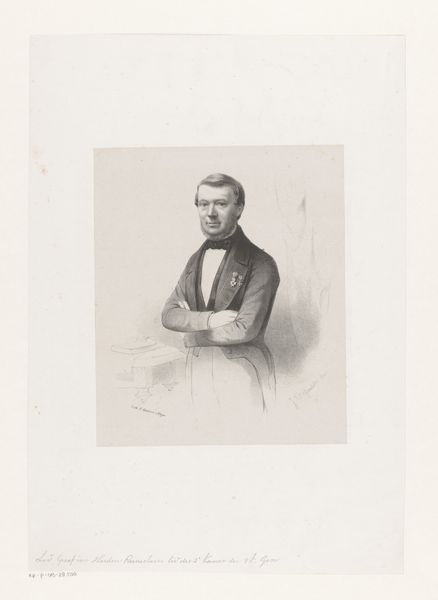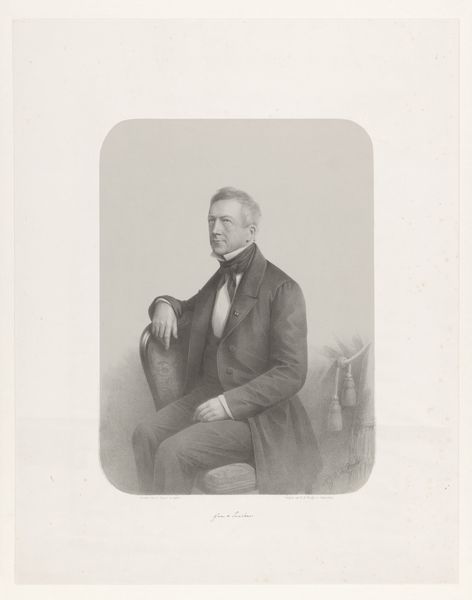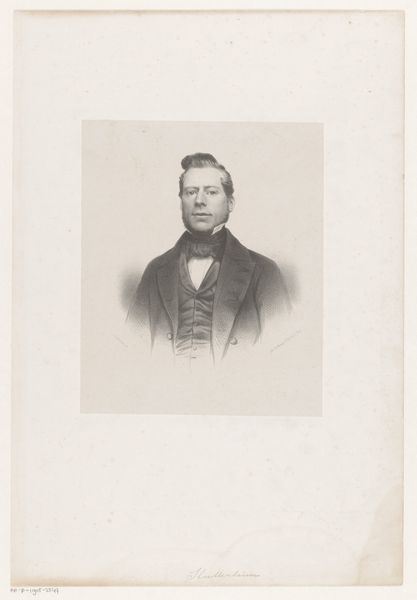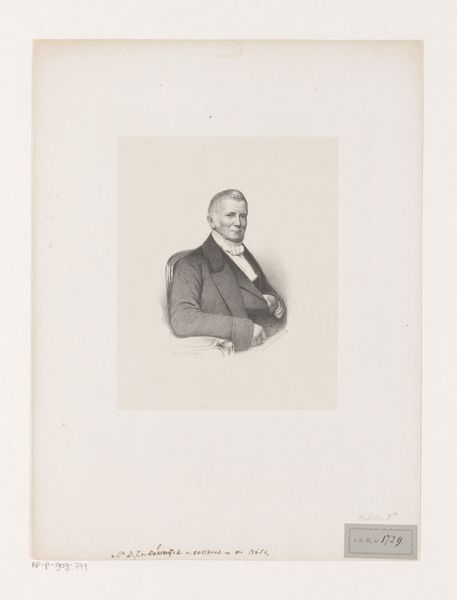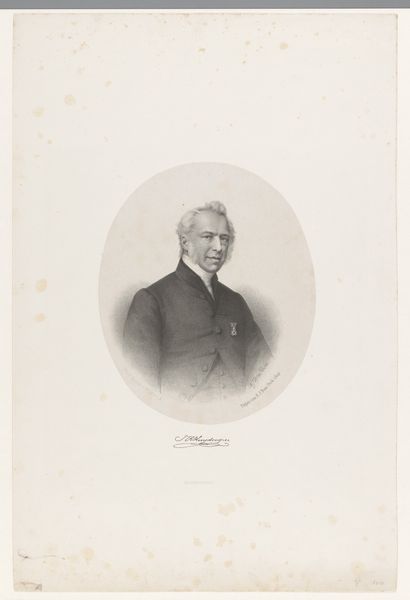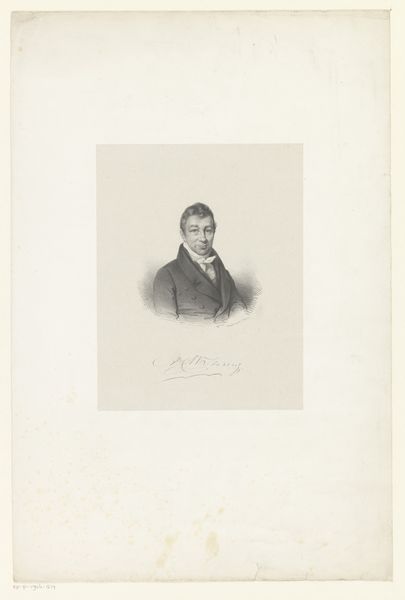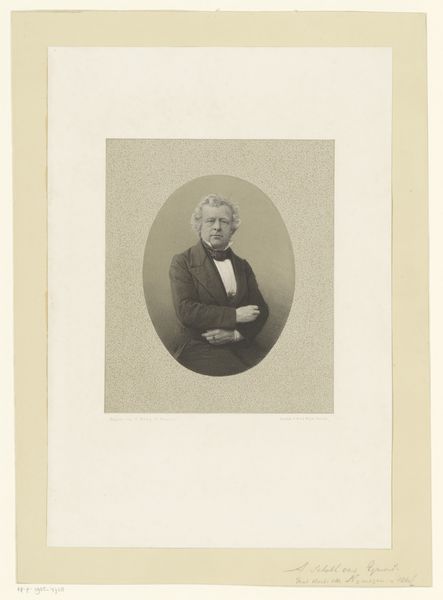
print, engraving
#
portrait
# print
#
old engraving style
#
archive photography
#
historical photography
#
romanticism
#
engraving
#
realism
#
monochrome
Dimensions: height 540 mm, width 353 mm
Copyright: Rijks Museum: Open Domain
Editor: This is “Portret van Antonie Waldorp,” an engraving by Frederik Hendrik Weissenbruch, created sometime between 1838 and 1863. It's at the Rijksmuseum. I'm struck by how…serious Waldorp looks, but there's also a softness to the light. What do you see in this piece? Curator: Ah, yes, Waldorp...a very serious gaze, indeed! But for me, it's the meticulous detail in the engraving, the way Weissenbruch captures the texture of his coat, the subtle lines that define his face…it feels almost…intimate, doesn't it? Like you're peering into the soul of a 19th-century gentleman. Almost like capturing light dancing in his eyes! What do you make of that strong contrast between light and shadow? Editor: It does create drama. Were portraits like this common at the time? Was this maybe like, the Instagram of the 1800s? Curator: In a way, yes! Engraved portraits like these were often commissioned by the sitter themselves or their families as a way to preserve their image and status, and were less pricey than paintings. They circulated more widely than painted portraits. You get to know their faces, the folds of their suits, the very set of their jaws! But more than just a record, they were statements. Did Waldorp seek this portrait as a method to gain a foothold in a very complex cultural network? Food for thought... Editor: Interesting. So it’s like a form of visual marketing, but for your personal brand? I see this artwork in a completely different light! Curator: Exactly! The image speaks of cultural status in the eyes of others. We begin to ask new questions when art pieces prompt personal insight. The most powerful art does exactly this.
Comments
No comments
Be the first to comment and join the conversation on the ultimate creative platform.
